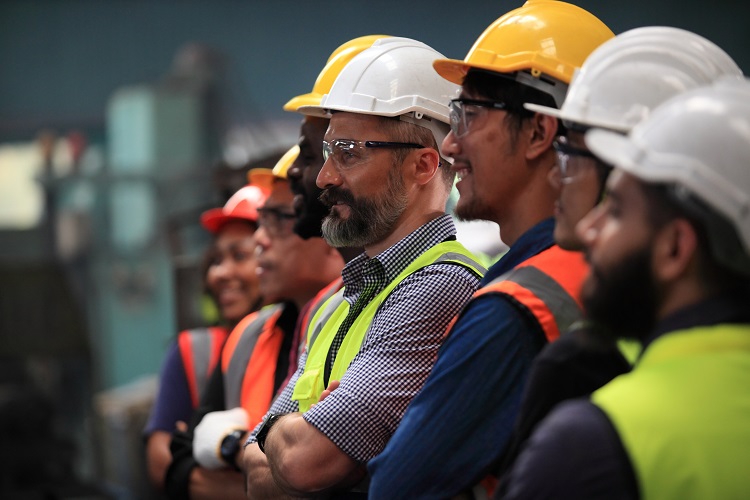10 Ways to Create a Safer Environment In Your Construction Business

At Acuity, we care about the contracting industry. We believe you are the foundation of the communities where you live and work, and ensuring safety in construction is more critical than ever. With advancements in technology and evolving best practices, here are ten strategies to foster a safer work environment:
1. Lead by Example
Leadership sets the tone for safety culture. Supervisors and managers should consistently demonstrate safe practices, reinforcing the importance of safety protocols to all team members.
2. Conduct Daily Safety Briefings
Implement brief, daily meetings to discuss potential hazards, review safety procedures, and address any concerns. This proactive approach keeps safety top-of-mind and encourages open communication.
3. Invest in Comprehensive Training
Regular training sessions ensure that all workers are up-to-date with the latest safety standards and procedures. Utilize interactive methods, such as virtual reality simulations, to enhance learning and retention.
4. Implement Regular Audits and Inspections
Schedule frequent site inspections to identify and rectify potential hazards. Use digital tools to document findings and track corrective actions, ensuring accountability and continuous improvement.
5. Investigate All Incidents Thoroughly
Even minor incidents can provide valuable insights. Conduct thorough investigations to understand root causes and implement measures to prevent recurrence.
6. Utilize Advanced Personal Protective Equipment (PPE)
Embrace the latest in PPE technology, such as smart helmets and wearable sensors, which can monitor environmental conditions and worker health in real-time, enhancing overall safety.
7. Leverage Artificial Intelligence (AI) for Risk Assessment
Incorporate AI tools to analyze data from various sources—like weather forecasts and workforce changes—to predict potential safety issues and proactively address them.
8. Enhance Site Security Measures
Install security fencing and clear signage to control access and inform about safety requirements. This not only protects workers but also prevents unauthorized entry, reducing liability risks.
9. Maintain a Clean and Organized Worksite
A tidy site minimizes the risk of accidents. Implement regular housekeeping protocols to keep walkways clear and materials properly stored, reducing trip hazards and improving overall efficiency.
10. Foster a Culture of Safety
Encourage all employees to take ownership of safety. Recognize and reward safe behaviors, and create an environment where workers feel comfortable reporting hazards or near-misses without fear of consequence.
By integrating these updated practices, your construction business can create a safer environment that protects workers and enhances productivity. Stay informed about emerging technologies and continuously adapt your safety strategies to meet the evolving demands of the industry.
An insurance company that cares about you and insuring the things you wish to be insured.
Get a Quote> Find an Agent>

